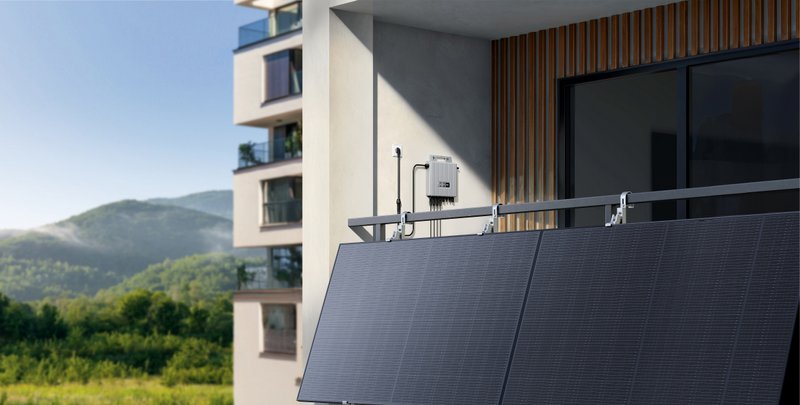Video: RE+ 2024 preview and questions to ask suppliers
On this episode of Power Forward!, we’re taking stock of solar business in 2024 and previewing what’s happening at RE+ in Anaheim with BayWa r.e. director of business development Travis Walker. Watch the full 14-min chat right here, or read a partial transcript below:
- 0:42 – What has hurt solar businesses the most in 2024? M1 payments
- 2:32 – Three healthy solar business practices in 2024
- 7:27 – Questions to ask suppliers at RE+
- 9:48 – How to evaluate loan and TPO providers at RE+
- 12:10 – What else is going at RE+?
RE+ is always a great time to think about where we’re at and where we’re going next. Residential solar installations have been down in 2024, so reflecting back on the previous 12 months, what aspects of this market would you say are here to stay?
Walker: I just came to BayWa r.e. probably four or five months ago and before that I was working at Mosaic for the last two and a half years. So, really getting it to see from the financier side, and now from the distributor perspective, I think when you think through what happened to some of these installers that fell on hard times, the first was the M1 payments that were coming from financiers. I actually think that was really harmful for the solar industry because it was paying you for work that you hadn’t completed yet, and so there was no requirement to use that money on the install that it was actually meant to be used for.
As the economic downturn really happened in 2023 and back end of 2022 in terms of finance rates going through the roof, most financiers pulled back on M1 payments. Not having those available to a lot of installers that were robbing Peter to pay Paul — they were taking the money for X install but they were really paying out marketing spend or other installs that were that were not paid for — that was really a hard time. When that money got taken away, we saw a lot of installers really struggle with that.
But I think the concept of M1 payments is what should really be taken into consideration. Don’t rob Peter to pay Paul. Don’t take money that should be spent for X and spend it on Y, thinking you’ll make it up later because, eventually, later could hit you really hard.
With that in mind, what do you say are healthy business practices this year? And what should installers that you’re talking to — what are you advising them to do now that maybe you weren’t this time last year?
Walker: A few things I’d like to run through on that. One: Find ways to be loyal but be diverse. I know that could be contradictory in some way, but don’t be the installer that is running to the cheapest new thing all the time. … What happens if you continuously run for the cheapest option is:
1. You don’t build loyalty with stable companies. You’re always jumping back and forth.
2. Guess what, at some point, that cheap option is not going to be a cheap option, which is also a word of wisdom I would give to installers. If something seems too good to be true, it is. If the market is priced here, and they’re priced there, something’s wrong. Once that micro market is corrected, they’re either going to pull back from you suddenly, which we’ve seen in the market, or they’re going to go out of business. Or, three, they’re just going to rework everything, and they’re going to raise their rates. Now, they’re going to be what everyone else is but maybe not be able to provide you with the stability or service that some of the longer standing businesses in that industry are able to provide.
3. This is a hard one, salespeople close your ears. Long-term good money is better than short-term great money. If you start chasing the newfangled thing because your salespeople want it, i.e., you go to the absolute cheapest TPO. You run all of your business through there, but maybe they haven’t had an opportunity to build out their infrastructure to handle the amount of deals that you’re giving them, or your business isn’t built to be able to take all the right amount of pictures and roll the right amount of trucks.
You have all this business coming in because you’re trying to service your salespeople instead of having good conversations with them about ‘how do I create a stable business where we’re in business for a really long time, together?’ I want to make sure you make good money for a really long time, not just great money now, and then all of a sudden we’re struggling.
Make sure that you, as the installers, are running your company. Take care of your salespeople — I don’t want you to not hear that part — take care of your salespeople, but not to the extent that it damages your business. Grow responsibly.
Hear Walker share a great example from a recent conversation with an installer about an expansion opportunity:
I want to go back to the idea of product selection, especially in the context of RE+ coming up. For installers that are headed to Anaheim, when they’re walking around and checking out new products and hearing sales pitches, what questions should they be asking?
Walker: I think it is really important for people to look out for: Is this a product that you’re just showing for RE+, or is it ready to go? A lot of times people will bring prototypes there. Before you start locking yourselves in, ask some really in-depth questions around availability.
Understanding domestic content and everything that goes around that. I know that’s going to be a hot topic specifically with TPO providers. Ask the appropriate questions to understand how this is going to help you, if that’s something that you’re interested in this year.
Also, how does their product pair with other big brands on the market? How do they interact with some of the things that you’re already installing? They should be able to talk about that in detail. If they can’t give you specifics, I would be a little concerned.
Another big thing you should look out for is warranties. We have got to be better from a customer service perspective, from a product service perspective. We have got to provide homeowners with a better overall customer service experience. So, knowing that the product is covered under warranty for X number of years is great.
Also look at who that warranty is backed by. What type of company are they? Who are they being financed by — a bigger, larger company, or is it a small fly by night company? Understand those things before you attach your customer service to that product.
Then, thinking on the financing side, which we’ve emphasized a lot here, how should I be evaluating loan and TPO providers and what they’re offering?
Hear Walker’s answer right here:
What else is going on at RE+? We’ve been talking about all the serious stuff, is there anything fun happening that we should know about?
Walker: Let’s have a blast. RE+ is a great event to meet people. BayWa r.e. has a couple of great events. One is our big main event — a bowling event Wednesday night at 7 pm. We’re taking over a bowling alley, and it’s going to be drinks and food and fun. Over 150 people are invited so please get with your outside sales rep immediately if you haven’t gotten your invite.
Then we have a scavenger hunt, which we’re partnering with SMA on. It starts Tuesday and goes through Wednesday. It starts at the BayWa r.e. booth (B48026). That’s where you pick up all your scavenger hunt stuff. Wednesday ends with a happy hour from 4 to 5 pm.
Register for the Solar Scavenger Hunt & the SMA POWERUP+ Happy Hour at RE + right here





Comments are closed here.